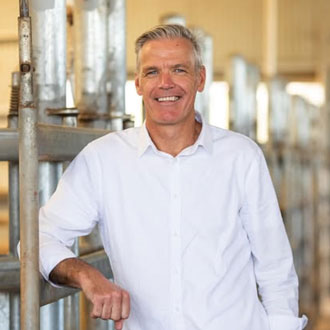What we do
The Australian Energy Infrastructure Commissioner (AEIC) is an independent role appointed by the Australian Government, reporting to the Minister for Climate Change and Energy.
They are supported in their role by an office team within the Department of Climate Change, Energy, the Environment and Water.
We:
- Help with complaints and enquiries from people about new or existing wind farms, large solar farms (5 MW or more), energy storage sites like pumped hydro or large batteries (1 MW or more), and major powerline projects. Make a complaint or enquiry
- Through our own engagement, share insights and advice into best practice approaches. For example - complaints handling, working with communities, and emerging issues.
- Make information about energy transition and specific projects easier to find and understand.
- Work across government and with other stakeholders on implementing the recommendations of the AEIC Community Engagement Review 2023.
The Commissioner’s role is guided by the Terms of Reference issued by the Minister for Climate Change and Energy.
About the Commissioner

Tony Mahar took on the role of the Australian Energy Infrastructure Commissioner in December 2024.
He cares deeply about fairness and positive outcomes for rural and regional communities. His time in government and corporate roles in agriculture and farming shaped this passion.
Tony knows the challenges of Australia’s energy infrastructure. His skills and dedication make him ready to tackle them.
As Commissioner, he focuses on engaging with stakeholders, managing issues, and working with industry to fix them. He seeks to create open and honest discussions. He listens, collaborates, and shares clear information. He believes in transparency and timely communication. Tony understands that clear and easy to access information leads to better outcomes for everyone.
Before this, Tony was CEO of the National Farmers’ Federation for nine years. He represented Australian farmers. He pushed for economic and environmental sustainability. He helped create the 2030 Roadmap for Australian Agriculture. He also expanded advocacy through partnerships and funding.
Tony holds a Master of Business (Industry Policy) from the Australian National University. He has deep knowledge of the economic, political, social, and cultural issues affecting Australian industries.
Terms of Reference
The role of the Australian Energy Infrastructure Commissioner was announced by the Australian Government on 26 March 2021 expanding and replacing the role of the existing National Wind Farm Commissioner.
The Commissioner will work collaboratively with all levels of government, scientists, experts, industry and the community to resolve complaints from community members about proposed and operational wind farms, large scale solar farms (5 MW or more), energy storage facilities, such as pumped hydro and large scale batteries (1 MW or more) and new major transmission projects.
The Commissioner will refer complaints about wind farms, large scale solar farms, storage facilities and new major transmission projects to the relevant respondent or authority and help ensure they are properly addressed.
The Commissioner will lead efforts to promote best practices, information availability, and provide a central, trusted source for dissemination of information. The Commissioner will ensure First Nations engagement and information needs are promoted and addressed.
The Commissioner will assist the Australian Government to implement the recommendations of the AEIC Community Engagement Review, in line with any advice in relation to those recommendations made by the Energy and Climate Change Ministerial Council.
In fulfilling these duties, the Commissioner will apply balance to the interests of the energy and agricultural, regional and rural sectors and other stakeholders impacted by the renewable energy transformation.
The Commissioner, supported by the Australian Government Department of Climate Change, Energy, the Environment and Water, will report to the Minister for Climate Change and Energy and provide an Annual Report to the Australian Parliament on delivering against these Terms of Reference. The Commissioner may also, by agreement with the Minister, lead reviews relevant to the Commissioner's role and expertise.
The Commissioner’s role will not duplicate or override the important statutory responsibilities of other jurisdictions, such as those relating to the planning and approval of wind farms, large scale solar farms, storage facilities and new major transmission projects.
Office of the AEIC (OAEIC)
The Commissioner is supported by a small team within the National Energy Transformation Division of the Department of Climate Change, Energy, the Environment and Water (DCCEEW).
The team includes:
- Assistant Commissioner – Works with and on behalf of the Commissioner. Provides strategic leadership on workplan and stakeholder engagement (including First Nations), complaints oversight/support, and departmental liaison.
- Executive Officer – supports the Commissioner and the team by providing operational leadership, including project-specific delivery oversight, supporting resourcing and governance needs.
- Executive Assistant – manages the Commissioner’s diary and travel, the 1800 contact number and the Commissioner’s correspondence.
- Case Handling Team – manage day-to-day handling of enquiries and complaints, including liaising with complainants, proponents and regulators, and escalating to the Commissioner and Assistant Commissioner as needed.
- Communications and Policy Team – manages AEIC communications (including website), support with issue specific background information and research, and manages officer level stakeholder engagement.
Previous Commissioners
John Sheldon (former interim Commissioner)
Mr. John Sheldon was the temporary Australian Energy Infrastructure Commissioner while a permanent replacement was chosen.
He is a senior Commonwealth public servant in the Department of Climate Change, Energy, the Environment and Water (DCCEEW). He has lots of experience working with communities and ensuring the public are accurately informed about energy projects.
Mr. Sheldon started the role on April 2, 2024, and finished in December 2024.
Andrew Dyer (2015-2024)
Mr Andrew Dyer commenced in the role of National Wind Farm Commissioner in November 2015. The role and name of the Commissioner was expanded to the Australian Energy Infrastructure Commissioner on 26 March 2021.
After nearly nine years of service as Commissioner, Mr. Dyer retired as the Australian Energy Infrastructure Commissioner on 31 March 2024.
